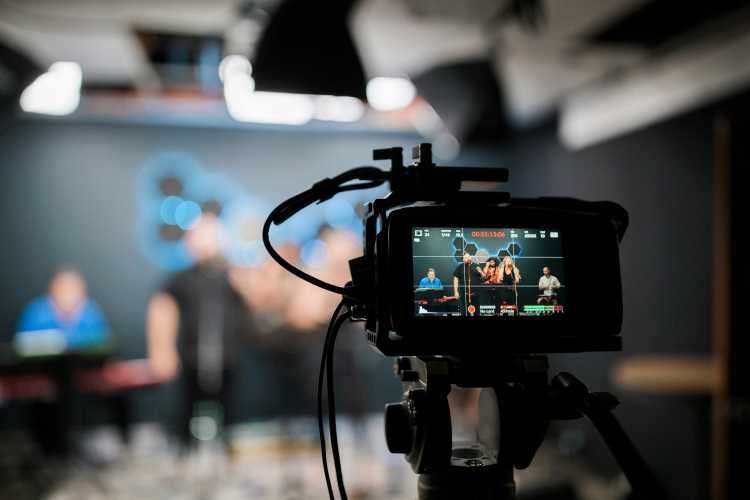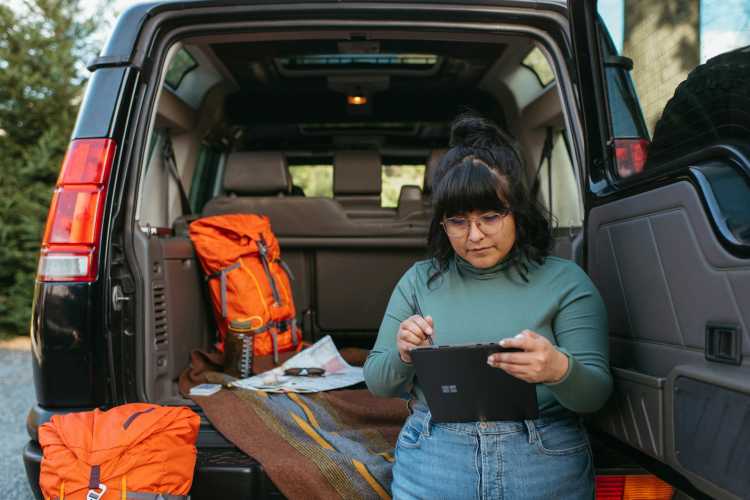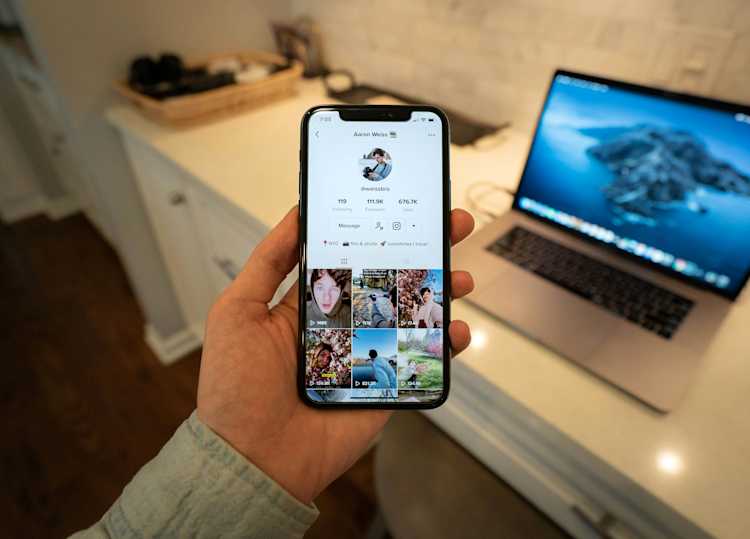Creators & Entrepreneurs
The Ultimate Guide to High-Ticket Sales (Updated for 2025)
We’ll show you what high-ticket items are and why high-ticket products and services offer a competitive edge.
Author
Mighty Team
Last Updated
October 23, 2025

Table of Contents
- What are high-ticket sales?
- How much can you make with high-ticket sales?
- Can high-ticket sales be a side hustle?
- Here’s why high ticket sales work
- How to master high-ticket sales
- 1. Understand your Ideal Member
- 2. Get the high-ticket psychology right
- 3. Build authority and social proof
- 4. Qualify leads
- 5. Build the right offer
- 6. Create members, not customers
- 7. Exceed expectations
- 8. Choose the right business model
- 9. Master objection handling and closing
- 10. Onboard members for long-term success
- Making digital high-ticket sales
- Funnels vs. Flywheels: Which is better for high-ticket sales?
- Conclusion
In this article
- What are high-ticket sales?
- How much can you make with high-ticket sales?
- Can high-ticket sales be a side hustle?
- Here’s why high ticket sales work
- How to master high-ticket sales
- 1. Understand your Ideal Member
- 2. Get the high-ticket psychology right
- 3. Build authority and social proof
- 4. Qualify leads
- 5. Build the right offer
- 6. Create members, not customers
- 7. Exceed expectations
- 8. Choose the right business model
- 9. Master objection handling and closing
- 10. Onboard members for long-term success
- Making digital high-ticket sales
- Funnels vs. Flywheels: Which is better for high-ticket sales?
- Conclusion
In this guide to high-ticket sales, we’ll show you what high-ticket sales are and why they are so unique. Then, we'll show you why charging more can be better for both you and your customers.
And we'll give you a 7-step guide for mastering high-ticket sales.
Try the ultimate platform for high-ticket memberships, coaching, and courses!
What are high-ticket sales?
High-ticket sales are the process of selling a high-ticket product or service. Unlike mass-market sales, which focus on the lowest price, sales, and buyers who are looking for a bargain, high-ticket sales appeal to a more discerning buyer--no matter the industry.
For example, look at the brand Tiffany & Co. They unapologetically sell expensive jewelry. Look at their ads and you'll rarely see them talk about "sales" or "discounts."

Tiffany's needs to be expensive, because their brand is high-end. In fact, in 2017 they released a line called "Everyday Objects." It included a $1,500 gold paperclip and a $1,000 silver soup can.
If you're thinking, "Who the heck would pay $1,500 for a gold paperclip," then it's not for you.
Look at brands like Rolex, Bentley, Gucci, or Ferrari. They ain't discounting.

These brands know that high-ticket sales work on exclusivity. Unmatched quality.
That's why people buy.
But high-ticket sales aren't just for Ferrari dealers. We see them in other areas like luxury vacations, high-end experiences, and premium events. In any arena, there are thousands of regular seats and a few box seats.
The lesson? In any part of the economy, there are some people who are willing to pay more than average for exclusivity, access, higher quality, or a certain brand. Now the trick is to make that work for you.
Are you building or selling?
There are two ways to earn from high-ticket sales:
Build and sell: You’re developing your own high-ticket product or service and selling it.
Sell only: For those great at selling, selling someone else’s high-ticket product or service might be a better fit. You’ll earn a commission per sale, and someone else takes care of the building, delivery, and customer service.
How much can you make with high-ticket sales?
Selling your own products or services
Mighty is the platform with the most $1 million communities. So, we have some awesome data on high-ticket sales for courses and memberships.
Many courses and communities making high-ticket sales are earning anywhere from $20,000 - $100,000/mo.
Here are some examples using a few of the numbers we’ve seen:
A program for medical professionals sold 40 memberships at $7,000 = $280,000
A community helping financial advisors succeed offers a $1,000/mo membership. It currently has 30 members = $30,000/mo
A spiritual community with different tiers of memberships, the highest being $1,000 = $600,000
A community for health entrepreneurs has 55 members to a $1,800/mo membership = $99,000/mo
A podcaster and author sold a $997 course to 5,000 members = almost $5 million!
These are REAL numbers from REAL courses and memberships. They show the incredible potential for high-ticket sales of products that YOU create and sell.
Selling for other people
For sales people making high-ticket sales of luxury goods or products created by other people, the amount you can earn usually depends on commission structure and the cost of the thing sold. While there are a ton of different ways to structure commissions, and lots of variables, here are some common examples:
Commission only Here are some rough examples by product:
High-end products and services online: 10-30% of sale price
Luxury real estate: 3.5-5% of sale price
Luxury vehicles: 15-35% of profit
B2B & Enterprise Software: 5-12% of sale price
Base Salary + Commission Some salespeople earn a base salary, and then make commission on top. For example, this is a common approach in luxury retail, with an average $40K-$80K base + 3-10% commission.
In some cases, the commission structure may be “trailing”. For example, high-ticket subscriptions might generate a 10-20% commission on the initial sale, plus 2-5% ongoing (“trailing”).
Can high-ticket sales be a side hustle?
High-ticket sales can make a good side hustle too. But ironically, it’s probably better to sell your own products or services. This gives you more control over when you work and earn. Selling other people’s products takes a lot of time to develop a potential client base and nurture.
Here’s an example of how a high-ticket side hustle could work:
An HR specialist starts a coaching practice on the side to teach millennials in management how to break into the C-Suite. It costs $1,800 for 6 weeks of coaching and class.
A master boat salesperson creates an online course for selling boats, helping new salespeople double their existing sales. It costs $7,000 for a pre-recorded course with a monthly mastermind.
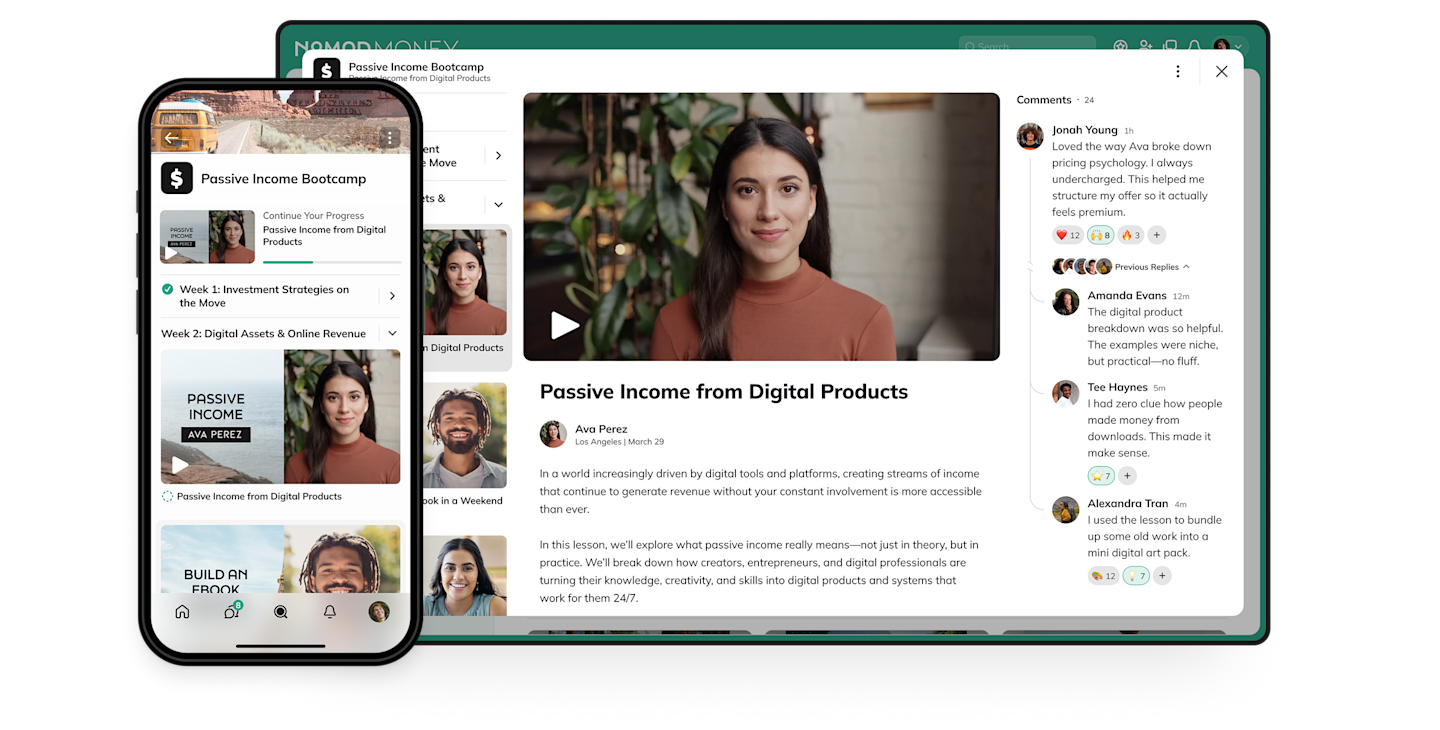
Here’s why high ticket sales work
What makes high ticket products succeed?
What did our data tell us about successfully high-ticket products? Here’s what we’ve noticed:
Some (not all) high-ticket sales on Mighty are for digital products that cater to businesses instead of individuals. By moving up-vertical, you can charge more.
Many of the high-ticket sales for individuals are products and services geared towards personal excellence: for example, health, spirituality, money, entrepreneurship. These are areas where people are willing to spend more for excellence.
Many high-ticket physical products sell based on exclusivity, quality, and excellence.
Even a modest customer base for a high-ticket product can generate serious revenue.
Many high-ticket sales on Mighty are for specialized knowledge (as opposed to generic). This is why it’s clear to get your Ideal Member right!
High-ticket sales & digital products
With the rise of the creator economy, we've seen more and more high-ticket sales go online. The internet has created an incredible opportunity to create and sell digital products with incredible margins.
And many creators have seen that racing to the bottom in price IS NOT a winning strategy.
In fact, just like Tiffany's diamonds, paying more for a digital product can signify higher quality too.
But it can also create accountability and dedication by the person paying for a transformation and experience. And for digital creators, high-ticket sales mean more profitability and the revenue to do the work they were called to do.
One cool example is Danielle Leslie. She created a high-ticket course called #CourseFromScratch that she sells for $2,497. And she's helped thousands of others launch successful online courses too.

High-ticket sales can unlock incredible results.
Why you should sell a high-ticket product or service
You'll make more
You might think, "Duh. Charging more equals making more."
But we can know this instinctively and still think the wrong way. If your revenue model requires selling millions of something to succeed, here's a tweak. How could you create a thriving business by only selling thousands? Or hundreds?
If you sell something for $5, you need to reach 200,000 customers to have a million-dollar business. If you sell something for $1,000, you can get to a million a year by selling 1,000.
Creating offers like a high-ticket product or even high-ticket coaching lets you make the money you need with way less people. Then you can focus on making sure those who do come are successful. It’s a win-win for both the entrepreneur and the customer.
You can use value-based pricing
Too many creators and businesses start by pricing things according to what they put into them. It’s a common rookie mistake, and it’s called the Labor Theory of Value.
For example, if it takes you three hours to make a course and your day job pays you $30/hr, you should sell the course for $90… right?
NOPE! Value-based pricing means pricing according to what a product is worth to a customer, not the time it took to create it. If your course helps a business owner generate an additional $150,000 in revenue this year, then it’s worth much more than $90 to them.
People will value it more
Would you believe that paying more for a product can lead to better engagement? In the psychology of consumption, people are more likely to use a product if they’re aware of a higher cost.
People value what they pay for thanks to something called the “sunk-cost effect.” When people put money into something, they’re more likely to use it. Or–in other words–people value what they pay for.
Your customers will experience more transformation
What if we told you that not charging enough can hurt your customers?
It’s counterintuitive, but paying more for something helps someone value it, which helps them use it, which helps them transform. And that’s why pricing something too low can actually hurt your members.
Do you value Tiffany's jewelry more? Or cheap, costume jewelry?
It's the same principle with online courses, communities, services, and digital products.
When people pay more, they increase their chances of success.
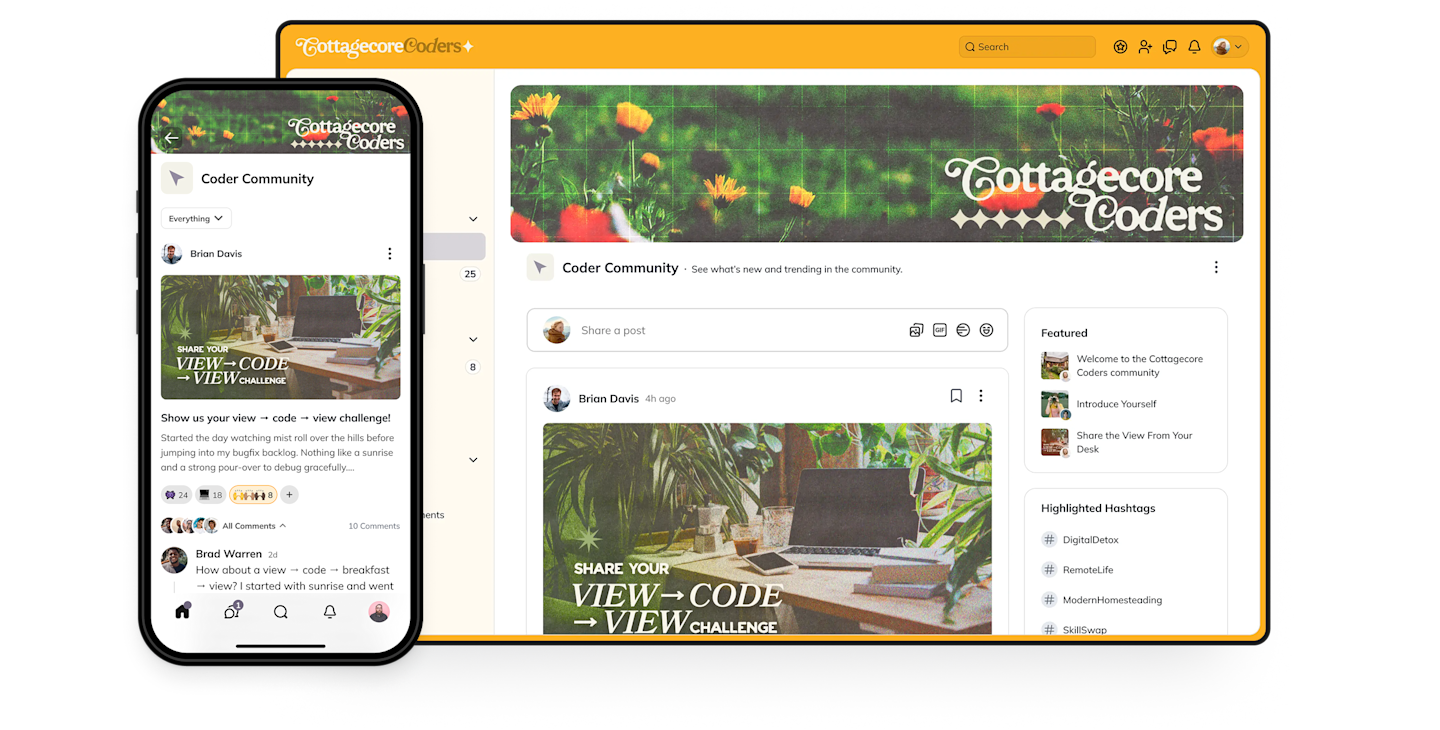
How to master high-ticket sales
Think about this. Most human beings will buy something that's a high-ticket item at least once in their life.
It might be...
The dream vacation they saved for.
An engagement ring or fairy-tale wedding.
The coaching program that will change their life.
The dream camera to capture their memories.
An in-ground pool to make the backyard an oasis.
The question isn't, can I sell a high-ticket item? It's, "Can I find the right high-ticket offer for my ideal customer, member, client, etc.?"
After all, if you're broke, Tiffany's couldn't spend any amount on advertising to convince you to pay $1,500 for a paperclip when you can't afford it.
The trick is to match the right offer with the right buyer. Then it's magic.
And that's the trick to high-ticket sales. Not high-pressure sales tactics to get people to buy something they can't afford. Spend the time to match the right offer to the right buyer, and you'll make magic. Mix it with a community flywheel and it will sell itself. (more on this below)
Here are the steps you can take to get the high-ticket sales right:
1. Understand your Ideal Member
Every product needs an ideal member, user, or customer–but it’s even more crucial for high-ticket sales. Nailing this is the foundation of everything else.
We learned this lesson at a recent ConvertKit conference that Mighty sponsored. One of the sessions was led by Tim Grahl--CEO of StoryGrid--who told the story of interviewing dozens (and eventually hundreds) of his ideal customers. Finally, it got to the point that he could jump on a call and say, "Let me guess. This is what you feel..."
And the shocked person on the other end would say... YES!

Tim gave us a masterclass in finding the ideal customer or member.
You obviously need someone who can afford what you’re selling, but you also need someone who sees the value and is willing to spend to get it.
And the best way to do this (that too many entrepreneurs skip) is to actually ask them.
You'll learn...
What their pain points actually are (not what you guess they are).
If they're willing to spend the money.
How to position the offer.
And what success would mean for them.
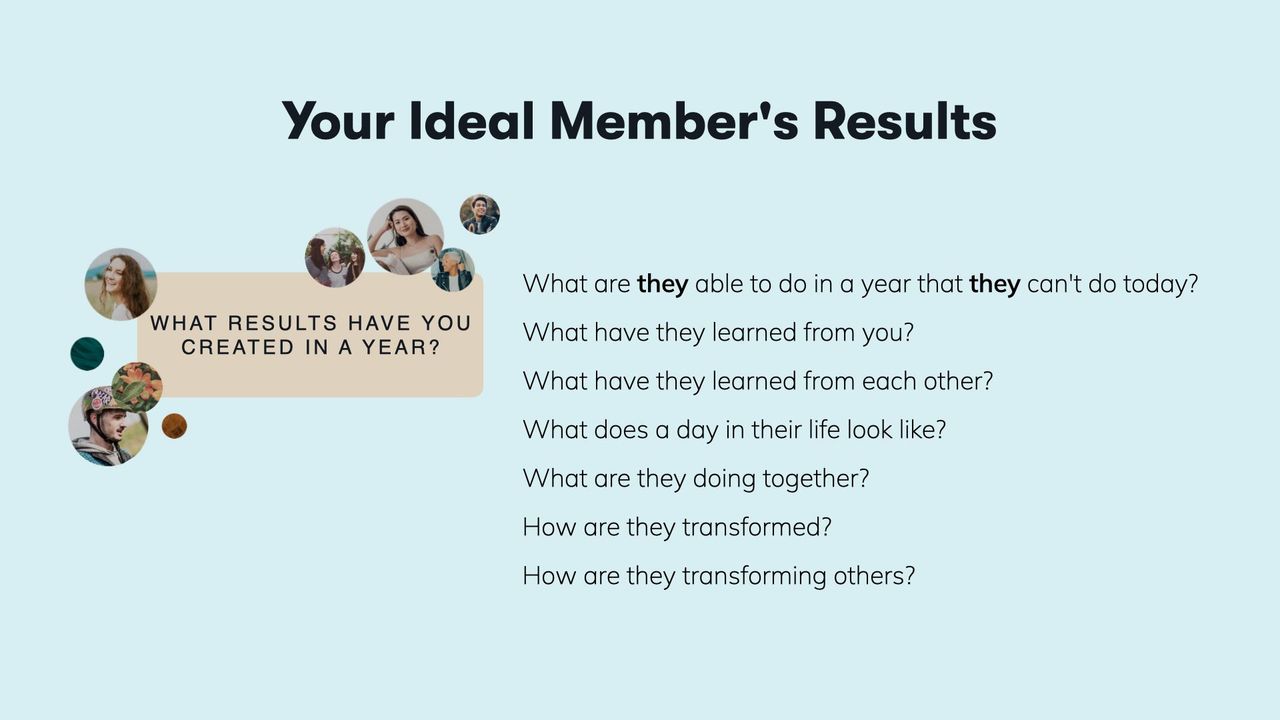
2. Get the high-ticket psychology right
We opened this post by talking about why people buy high-ticket products. And those reasons are very different from the race-to-the-bottom of discount merchandising. At the end of the day, these people are looking for more than a sale.
People who buy Bentleys and Rolexes pay for status.
People who buy high-ticket courses might pay for a transformation they can’t find anywhere else.
People who join a high-ticket mastermind might be about exclusivity.
It’s important to understand why people will pay for your high-ticket product.
3. Build authority and social proof
When you’re launching a high-ticket product, you need trust. Often, this trust comes from building a stellar personal brand and/or adding authority and/or social proof. The more people know they can trust you, the more comfortable they are paying high ticket prices.
Here are some great ways to build these:
Collect testimonials and case studies from successful members. As a bonus, you could even recruit successful members to field questions from would-be members (perhaps offering a financial incentive). Nothing helps make future clients feel safe than glowing reviews from past ones.
Showcase any credentials or certifications you have and/or show off relevant experience.
Consider getting your ideas out there with thought leadership that helps you develop your ideas while building trust with your audience.
Collaborate with other authority figures. Things like shared webinars, invitations, or combined offers help you tie your credibility to theirs.
4. Qualify leads
Somewhere along the line, you make sure you’re selling to the right person. For example, with a high-ticket course this could be a person who needs the transformation you’re selling and who can also afford it.
Say you’re selling a social media marketing course, you might want to sell to businesses that already have a product and revenue.
Lead qualification for high-ticket sales isn’t just about making the sale–it’s also about ensuring your members have the right conditions to be successful. Because successful members will become your supers, they’ll tell the world.
You want them.
5. Build the right offer
Just because you've done the background work doesn't mean your high-ticket sale is made. You still need to build the right offer.
And yes, if at all possible, you should be building an offer to fit your Ideal Member. The offer itself needs to speak exactly to the growth point your customer or member is searching for.
It's always easier to create an offer that fits than to try to get your customers to buy an offer that doesn't.
6. Create members, not customers
One thing we're passionate about--if it fits--is creating members.
Customers are transactional. Members belong. And that’s what makes online communities so beneficial to businesses.
Imagine you sell high-end BBQs. Which is going to help you sell more? Optimizing a funnel perfectly with Facebook ads? Or creating a membership site where grillers can come together, share ideas, recipes, and talk about the product. (Of course, you might do both.)
Creating an environment where people feel they belong is what makes high-ticket sales work. That's community-led growth. Or, McKinsey calls it the community flywheel (and named it the top business model of the 2020s).
Repeat business is the bread and butter of so many thriving brands. And creating a membership can create repeat business around your high-ticket sales.
Again, this needs to fit your Ideal Members and their journey.
7. Exceed expectations
Of course, when you deliver a product or service, it’s important to make sure you exceed expectations too. The ability to create a “wow” factor is what creates the all-powerful word of mouth and drives member-led growth.
With memberships, we like to think of "the best year ever." What is it that will help your Ideal Member have the best year of their life, with results and transformation they've never experienced before?
That's what you should build. And that thing--whatever it is--is perfect for high-ticket sales.
8. Choose the right business model
It’s so simple, but true. Mastering high-ticket sales isn’t about creating the perfect sales letter or copy. It’s not about setting fake deadlines to force “urgency” or pressuring your leads. That’s the funnel approach to high-ticket sales, and it’s becoming less and less effective.
The way to master high-ticket sales is to choose the right business model to begin with.
And that makes selling a high-ticket product or service much easier. We're big on creating community flywheels. But ultimately you have to find what works for your brand.
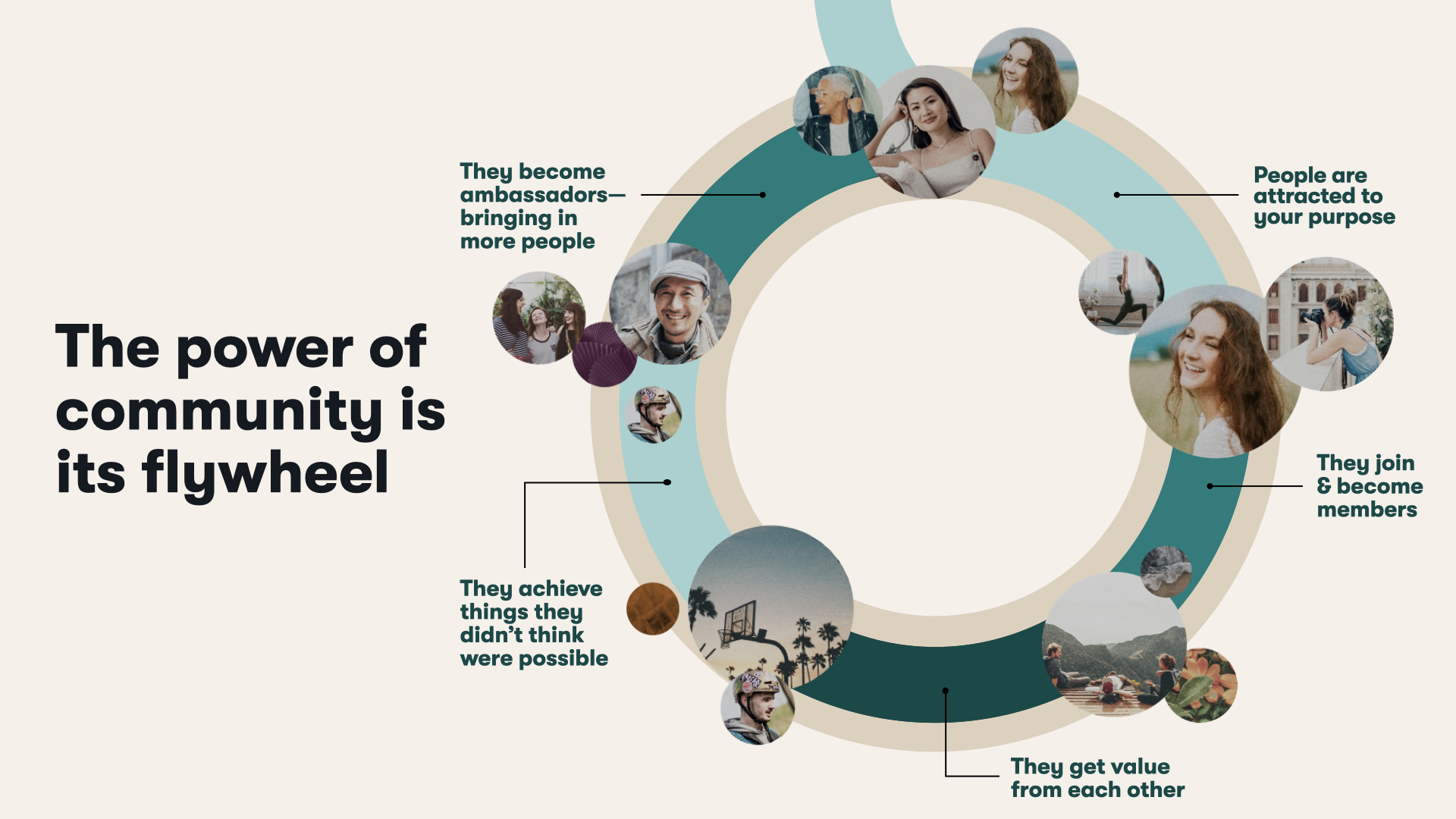
9. Master objection handling and closing
Here are a few tips to help you close the sale and handle objections. Remember, this isn’t just about pressure selling. You want to make sure you’ve found the right members for your high-ticket offer. But here are a few ways to respond to common objections.
“It’s too expensive.” Help them frame the value of what the transformation would be worth to them. Help them understand what it would mean to not get that transformation. For example, for a high-ticket business coach, the potential outcome is literally making much more money!
“I’m not ready right now.” Ask what’s going to change in a year or two that will make them more ready than now. What would it take to feel ready? Is that going to happen? Is it worth waiting for?
“I need to think about it.” This is a fair response, but see if you can help them narrow down what there is to think about. Do they need more information? Someone else’s approval? Are they questioning if the transformation is the right one? Whether you make the sale right now or not, clarifying what’s standing in the way can often help them move forward–even if it’s not today.
You can offer flexible payment for your high-ticket programs. For example, this could mean adding in options for payment plans, automated payments, or different bundle or delivery options for people with different budgets. Flexible payment plans make it more likely that people can say yes to your program–especially if they can pay over time, and especially if they can start to see results before their payments are done.
10. Onboard members for long-term success
Once you sign members, create a standard onboarding process to get them going. This helps them know what to expect, while also minimizing challenges and confusion. Here are some things a great onboarding process can do:
Create clear expectations. When members’ expectations don’t match their reality, it’s a recipe for upset.
Set members up for early wins. This helps them get motivated and trust the process!
Set your times and rhythms for regular check-ins, events, masterminds, etc.
Connect them to other people! The greatest transformations often happen in community–make sure members have a chance to meet and engage with each other.
Create accountability moments to help members reach goals.
Create feedback loops for members to input into your program and their own growth.
Making digital high-ticket sales
If you've done everything right from the steps above, how do you structure a high-ticket business?
There are a few different ways, but let's talk about two of the most common models for selling high-ticket items and the pros and cons of each:
The funnel
A funnel has been the dominant sales model in marketing both physical and digital products for a long time. It focuses on moving customers through four stages: awareness, consideration, conversion, and finally loyalty (which creates repeat customers and word-of-mouth promotion).
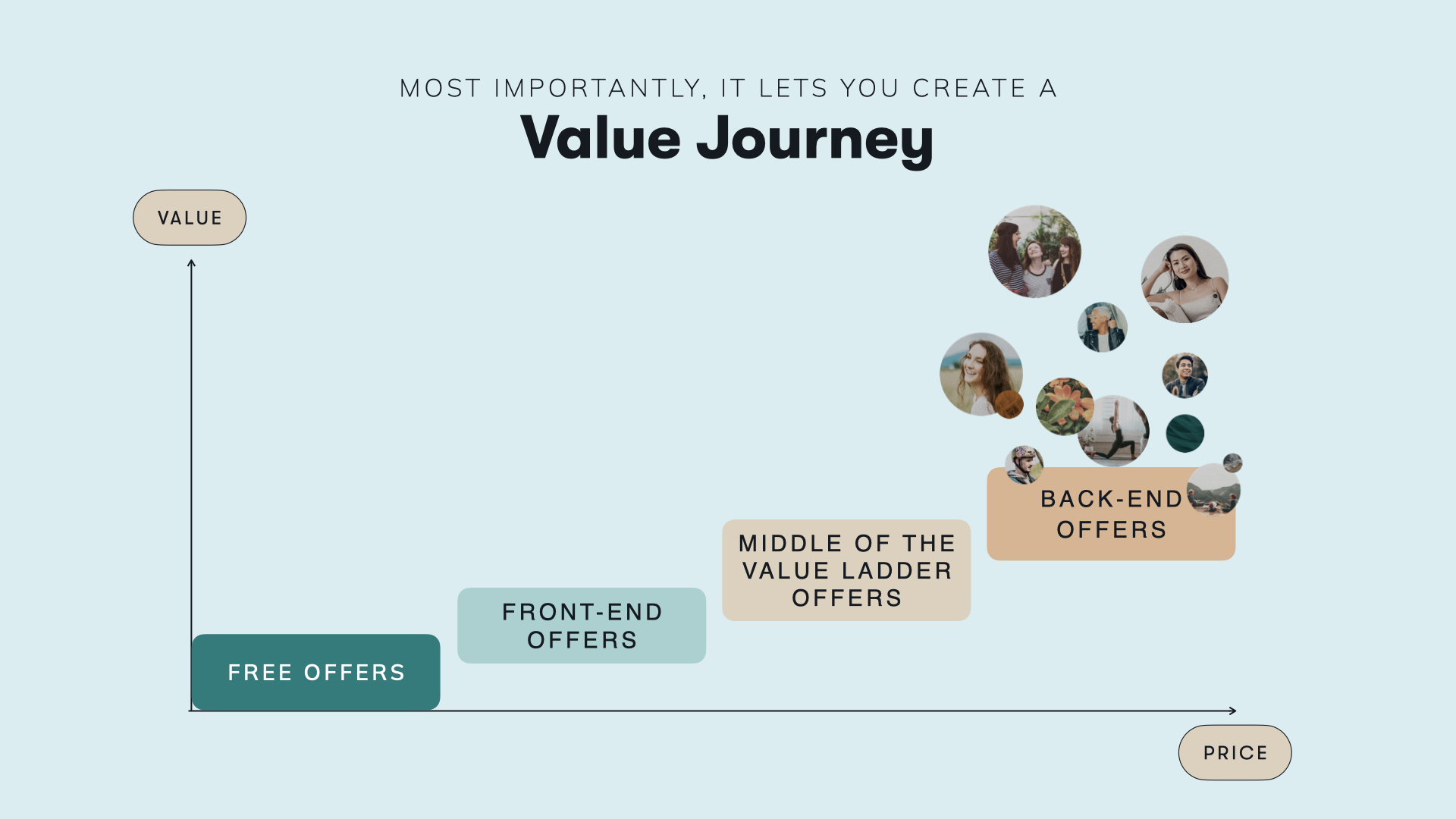
A funnel makes it easy to reach mass users through paid social media and then to convert a small number of them into an offer. But if you’re running a funnel in the 2020s, you’re engaged in a mass, high-stakes competition with similar brands AND customers are frankly aware of what’s happening.
We all know the feeling of being sold to–and the “this is your last chance” messages don’t work like they used to.
Brands liked funnels because of their predictable revenue. For example, if you know you have a 2% conversation rate and you push 20,000 people through your funnel, you can be reasonably confident that 400 people will buy.
Funnels have their place, but there’s a way better method.
What is a high-ticket sales funnel? A membership site sales funnel moves your ideal customer through a series of steps, losing people at each one until you serve up an offer to the percentage of people who make it through.
The community flywheel (better)
The community flywheel is an emerging business model that focuses on getting your supermembers into community with you and letting the conversations and member engagement build the brand and drive sales. It was McKinsey that identified the community flywheel as the best way to build a brand in the 2020s.
It comes down to this. Your goal should be to constantly be converting your subscribers, followers, customers, or whatever, into members.

All those things are transactional. But members belong. Businesses that choose a member-led approach see a huge benefit in growth.
Flywheels require five things: Entering into community with your members, choosing “hero” products, bringing in a powerful brand story, and co-creating content with members, all of which lead to effortless transactions.
Unlike funnels, community flywheels can experience rapid member-led growth as your supers become your biggest promoters. AND unlike funnels, a community flywheel is a content engine that you don’t have to run (at least not entirely), since your members show up and create content and conversation for free–or even pay to do it.
If you’ve experienced thriving brand communities, you might have experienced a community flywheel.
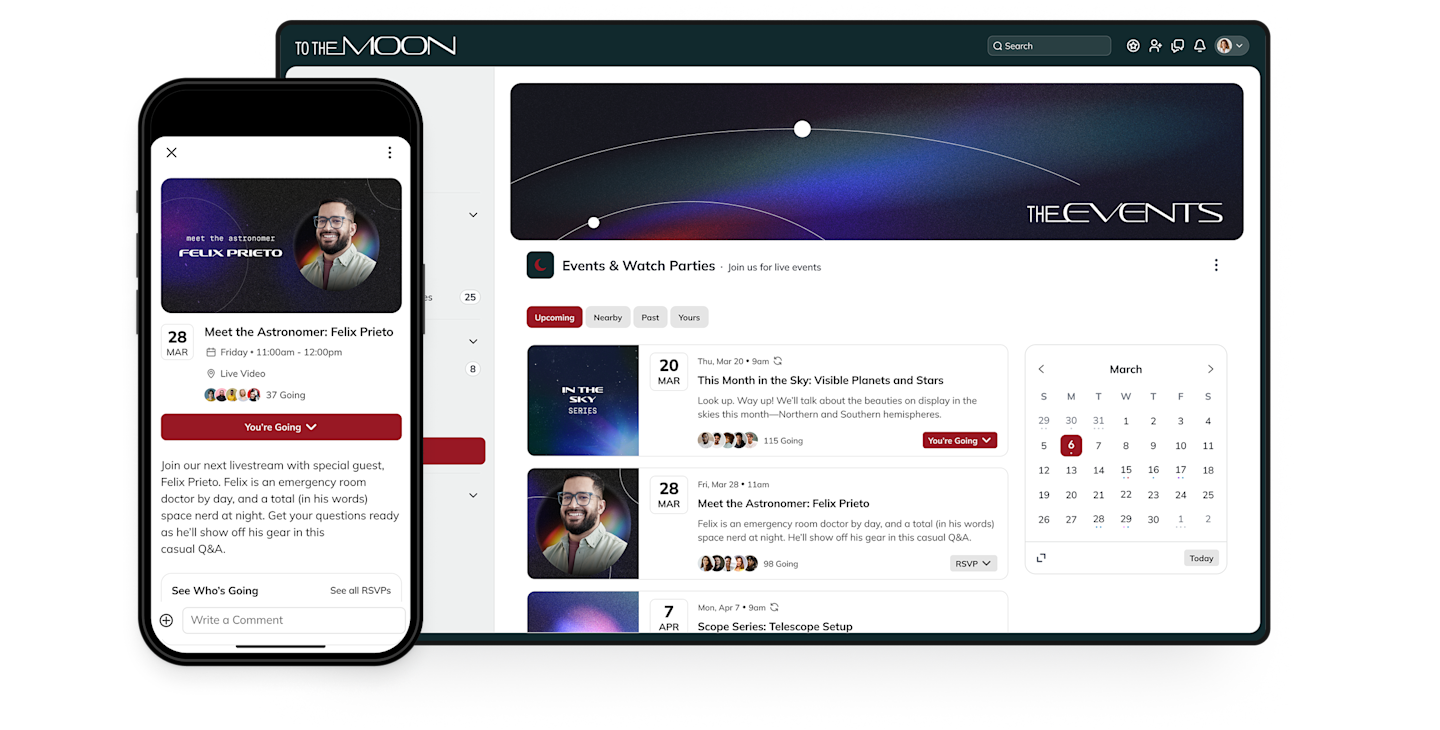
A community flywheel is the secret to building a thriving member-led business, and you can unlock it by giving your members something to belong to.
Funnels vs. Flywheels: Which is better for high-ticket sales?
What happens to prospects who don't buy?
Funnels: They’re gone. Maybe they stay on your email list if you’re lucky.
Flywheels: Members stay in your ecosystem and buy when they’re ready OR find other offers they love.
Who does the selling?
Funnels: You do.
Flywheels: You and your members are both involved, thanks to member-led growth and word of mouth.
How does the sale happen?
Funnels: Through a high-pressure offer or slick marketing copy.
Flywheels: Effortless sales because your members are in your ecosystem ready to buy.
Customers move in a…
Funnels: Straight line (until they drop off)
Flywheels: Circle (staying engaged)
How do additional sales happen?
Funnels: Upsells or finding new customers
Flywheels: Engaged members look for more products and services (sometimes they even ask for them).
How does customer acquisition work?
Funnels: Keep spending money to fill the top of the funnel.
Flywheels: Member-led growth means that it grows organically through word of mouth.
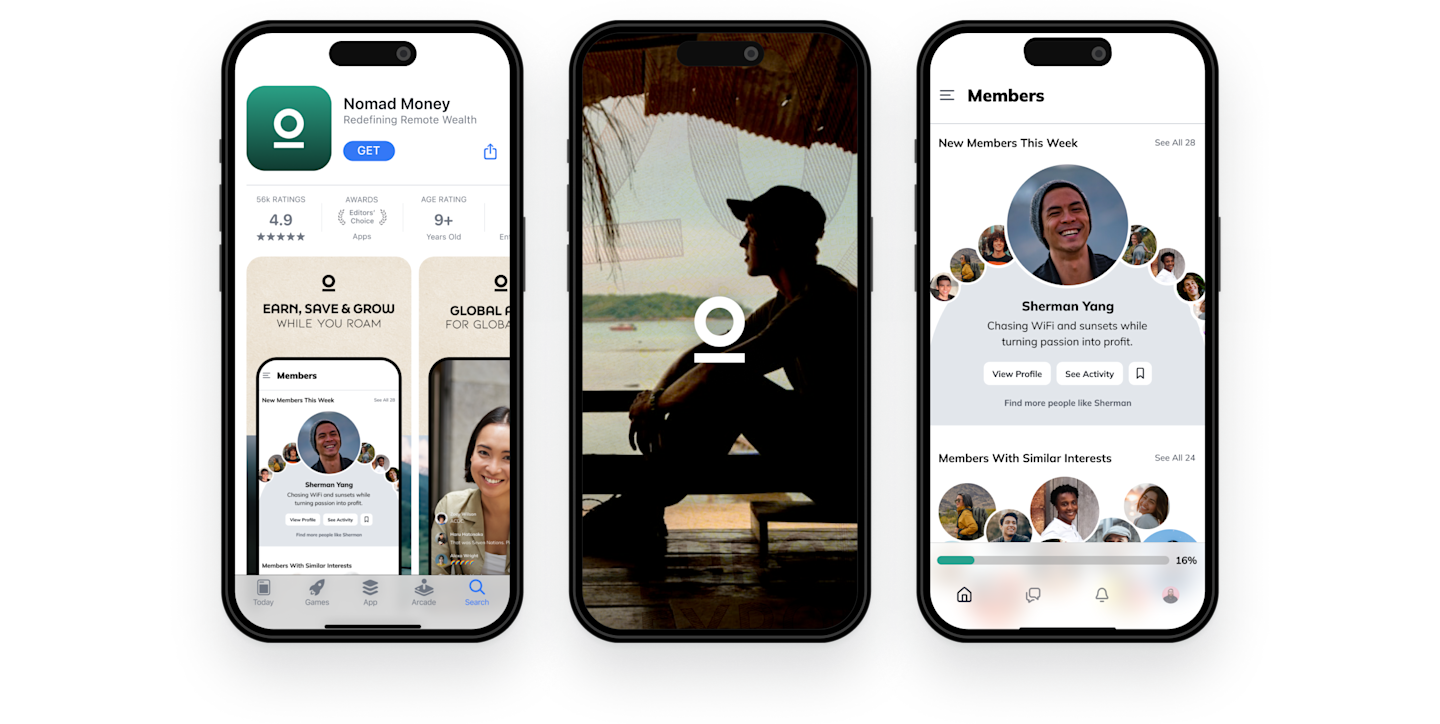
Using AI for high-ticket sales
Here are some hacks and tricks to make your high-ticket selling easier… with AI!
Use AI…
To build out your community, including defining your Ideal Members, Big Purpose, and product strategy.
For automating lead sequences or emails, or use CRM automations for following up.
To personalize individual offers and reach outs.
To automate scheduling for discovery calls.
To analyze sales conversations to find improvements (if you have transcripts).
To help create content for social media: text posts, videos, shorts, etc.
To boost your member engagement and completion rates.
Tracking analytics and metrics
To close, we should talk about tracking what works. And the best way to do this is with some built-in community analytics. You can track the following numbers:
Total sales: Track the number of people who convert and buy, obviously. Your top-line number from analytics will probably be your sales and revenue.
Conversion rate: However you get people into your pipeline (ads, workshops, thought leadership, etc.), track the percentage of people who convert.
Retention and churn: It’s not enough to get people into a high-ticket offer. You want to make sure they stay. Check your churn rate, and take action to lower it over time. If you can manage exit interviews or surveys, this could be vital data for reversing churn.
Customer acquisition cost (CAC) and lifetime value (LTV): If you’re running paid marketing, you need to understand if the numbers make sense. Calculate how much it costs to acquire your members (e.g. with ad spend, sales salaries, software, etc.). Then calculate the lifetime value of a member to make sure that cost makes sense.
Track member success: Look for engagement. How often do members log on? Are they completing the work? Are they staying on your membership platform? Are they meeting people? These are hallmarks of a great program.
Conclusion
We hope this post has you ready to rock your next high-ticket sale. If you get the fundamentals right, it can be a breeze. The result is 6-figure launches and comfortable balance sheets.
But remember, no amount of marketing or funnels will fix the wrong offer to the wrong person.
If you're looking for a place to build and sell high-ticket products, come build on Mighty Networks! It's got everything you need to sell high-ticket memberships, courses, events, coaching, masterminds, and more. You can bundle any of these to build a business that fits your brand.
And it's all on a platform G2 has ranked as the best online community management software.
Try it free for 14 days!
A few more FAQs
1. What are high-ticket items?
High-ticket items are products or services that have a large cost to purchase but are really valuable to the person buying. Unlike lower-priced products or services you pay for all the time, people usually buy high-ticket items infrequently (e.g. a car, an all-inclusive vacation, a house). This means that high-ticket items are special, and we often value them more because of the high price we pay for them.
Usually, we think of a high-ticket item as $1,000 or more.
By the same logic, a high-ticket product costs a lot but offers a lot of value. This is true for the examples we gave above, like your bike or that luxury vacation. But high-ticket products are also common online, as people create high-ticket digital products to share what they know. More on this in a minute.
2. What are some examples of high-ticket items?
houses
cars
boats
degrees
vacations
retreats
3. What are high-ticket digital products?
A high-ticket digital product is a high-ticket item that’s delivered in a digital form; examples of digital products include a high-end digital course, a coaching package, or a high-end virtual event. There’s a huge explosion of tech solutions and platforms for delivering digital products and services–the Digital Media market is projected to hit $1.71 tn in 2025. As a subsection of this, high-ticket digital products are growing fast too as more and more of us are comfortable with paying for high-end digital experiences or personal transformation.
High-ticket products in the digital space can also create a more profitable business for the creator or entrepreneur. A lot of online creators are trying to monetize by coming up with a cheap offer and selling thousands of them. This leaves them scrambling to get people in the door. And even if they do end up with the thousands of customers they need to make a living, they’re stuck providing customer service to those thousands of people, which they can’t afford to do because they charged so little.
High-ticket digital products fix this problem by providing stable revenue from a smaller customer base.
4. What price range officially qualifies a product or service as "high-ticket"?
Like we said above, $1,000 is a pretty good starting number. But it varies widely by type of product or offer.
Digital products = $1,000+
Coaching = $3,000+
Luxury goods and services = HUGE variation
5. How large does my audience need to be before launching a high-ticket offer?
Quality matters more than quantity. You need a group of people who trust you enough to buy a high-ticket product. For many people, 5 - 10 high-ticket sales can change your life.
Here are a few considerations:
You don’t need mass market appeal. Huge social followings don’t necessarily convert to high-ticket sales. You need a specific audience or niche that will convert.
Not everyone will buy though, so you do need enough people that some of them will convert. 100 people who know, like, and trust you is a good number to shoot for.
Warm leads are better than cold. 500 people on a mailing list who open your emails and stay connected are better than 500 social media followers.
You can build your offer while you also build your audience, especially by leaning into live learning and test launches.
6. Should I list the price publicly or reveal it only on a discovery call?
There are pros and cons to each.
Pros to listing publicly:
People know what to expect (no sticker shock).
You waste less time selling to people who can’t/won’t afford it.
It offers transparency and can build trust.
Pros to only revealing in a sales call:
You can build trust and sell the value first.
You can explain why the price is justified.
You can build in flexible or custom pricing, discounts, or adapt to specific needs.
7. Is it wise to offer money-back guarantees on high-ticket programs?
It can be a good strategy for new coaches or creators. Here are a few things to consider.
Offering a money-back guarantee can boost people’s trust and make them more likely to buy.
But it can also decrease their dedication and success if they don’t take it as seriously.
It can also decrease the value perception of your program–potential members might wonder why you need to offer it.
If you offer a money-back guarantee, it’s probably best to set a time limit (e.g. within the first week).
Make sure to dial in your qualification and Ideal Member to decrease the risk of money-back asks.
8. What metrics—close rate, refund rate, renew rate—indicate my offer is healthy?
Ruler analytics reports that the close rates for most channels hover at 2% on average: that’s true for email and organic.
If your leads are highly pre-qualified and educated, it’s possible that your in-person meetings could sell higher–like 5 - 10%.
For refunds, anything over 5% is concerning. If you’re selling a high-ticket product to qualified buyers, refunds should be relatively rare.
There’s no fixed renewal rate that’s healthy. It depends on your product. If members accomplish their transformation in one cycle, renewals may be low. If you’re working with members for years (say, as a high-ticket coach), they might be higher.
9. How can a private Mighty Network community increase perceived value and retention for a high-ticket program?
Adding a membership to a high-ticket offer creates amazing results. In a membership, people aren’t alone. They go through transformation together. Creating a private community offers:
Higher engagement and higher retention as members connect to each other.
Members create value for one another by sharing ideas, content, and stories.
The community boosts accountability, since members see each other commit to goals and encourage each other.
Members know they aren’t alone, making the transformation (and sharing wins) more exciting.
Referrals go up! Members know that the community works, and they’re more likely to share with friends.
All these things in a private environment on a branded platform make a private Mighty Network a great choice for running a high-ticket membership. And you can sell any combo of coaching, community, courses, events, livestreams, or premium content, all under your own brand and even under your own branded app.
Mighty is G2’s top-rated community platform and is used by Tony Robbins, Gary Vaynerchuk, Mel Robbins, Matthew Hussey, and Marie Forleo.
Ready to start building your community?
Start a free 14-day trial to explore Mighty—no credit card required.
More like this
Join Mighty Community
Learn the principles of Community Design™ (and see them in action) alongside thousands of creators and entrepreneurs. It's free to join!

Online Courses
Creating a Course
Teaching a Course
Course Platforms
Selling a Course
Communities & Memberships
Community Platforms
Managing a Community
Building a Community
Growing a Community
Monetizing a Community
Content Creation
Creators & Entrepreneurs
Monetization
Content Creation
Starting a Business
Website Builders
Creating & Managing a Website
Events
Event Platforms
Hosting & Marketing Events
Branded Apps
Creating a Mobile App
Coaching Apps
Community Apps
Coaching
Mastermind Groups
Starting a Coaching Business
Coaching Platforms
Filter by Category
Online Courses
Communities & Memberships
Creators & Entrepreneurs
Events
Branded Apps
Coaching
Start your free trial
14 Days. No Credit Card Required.















